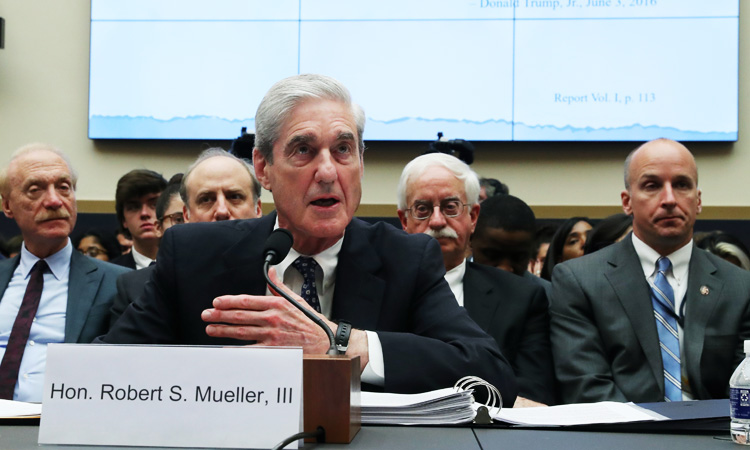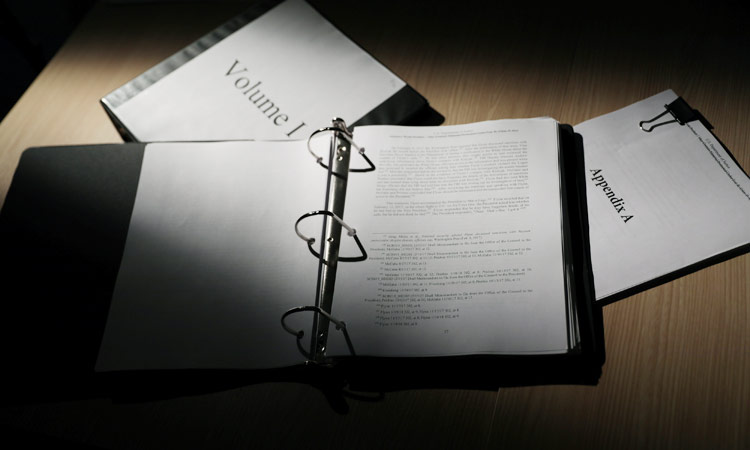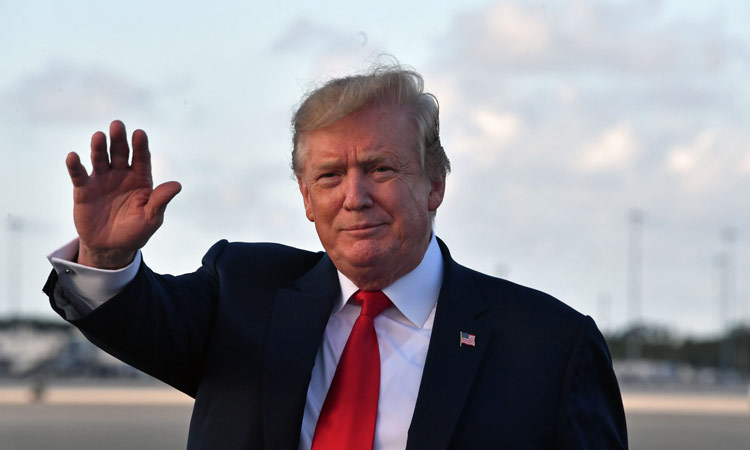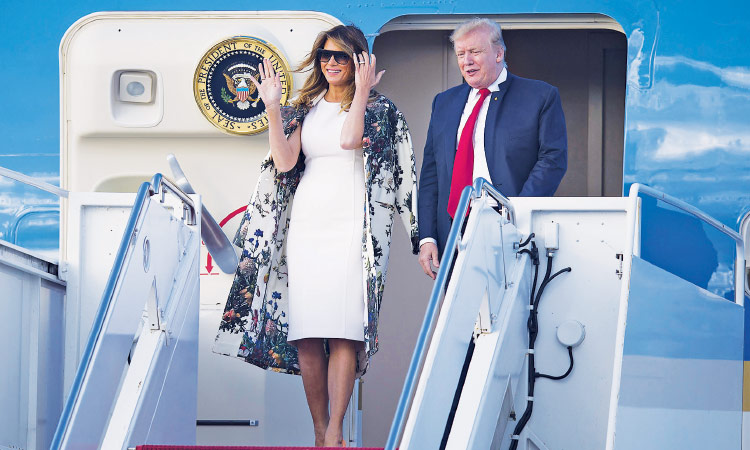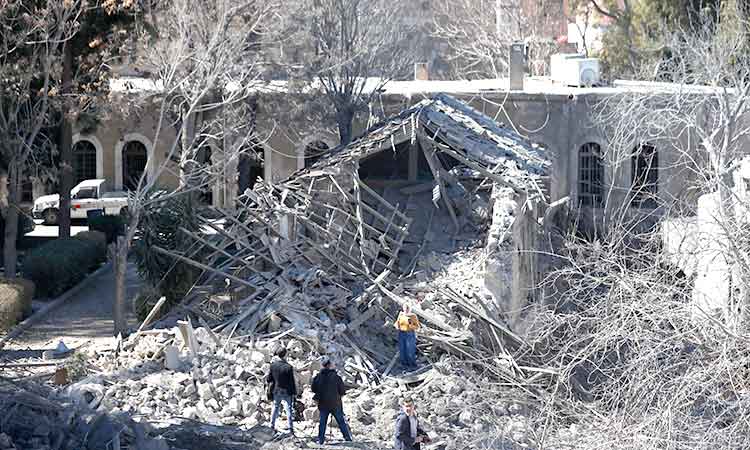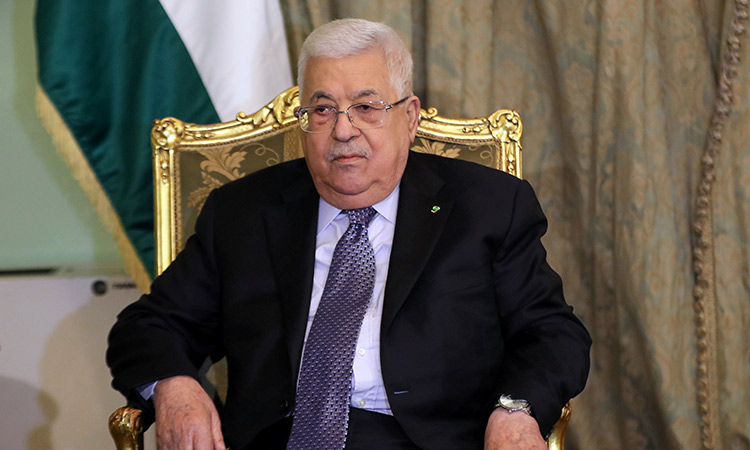Trump told NSA to counter fake news: Mueller report
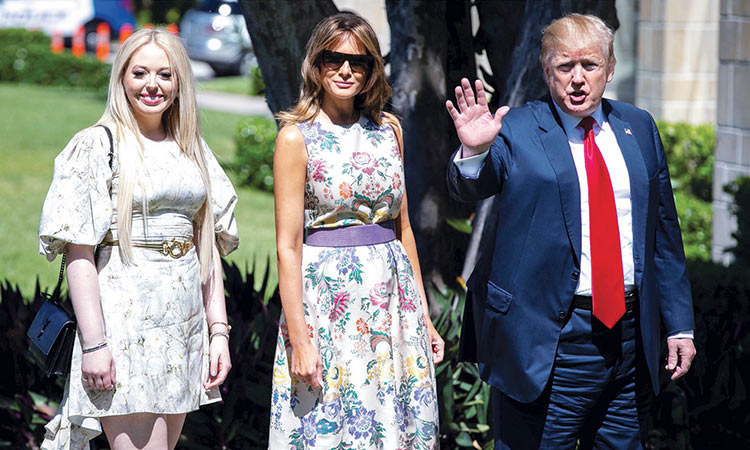
Donald Trump, Melania Trump and Tiffany Trump arrive for the Easter service at Bethesda-by-the-Sea Episcopal Church in Palm Beach, Florida, on Sunday. Reuters
Trump told Mike Rogers, director of the National Security Agency (NSA), that news stories alleging that Trump’s 2016 White House campaign had ties to Russia were false and the president asked whether Rogers could do anything to counter them.
Rogers and his deputy Richard Ledgett, who was present for the call, were taken aback.
Afterward, Ledgett wrote a memo about the conversation and Trump’s request. He and Rogers signed it and stashed it in a safe. Ledgett said it was the “most unusual thing he had experienced in 40 years of government service.”
Top congressional Democrats left the door open on Sunday to pursue the impeachment of Trump, but said they would first need to complete their own investigations into whether he obstructed justice in Mueller’s Russia probe.
US House Judiciary Committee Chairman Jerrold Nadler said on Sunday that if the evidence shows that Trump obstructed justice in Mueller’s investigation, then it could be an “impeachable” offense.
“If proven, some of this would be impeachable, yes,” Nadler said on NBC’s “Meet the Press.” Nadler said that Democrats are not currently pursuing such an action, but that they plan to “go where the evidence leads” them.
White House candidate Senator Elizabeth Warren, has called for the start of proceedings since the release of Mueller’s report on Thursday.
Mueller noted that Congress has the power to address whether Trump violated the law, and Democrats said it would be a matter of discussion in the coming weeks.
“That’s going to be a very consequential decision and one I’m going to reserve judgment on until we have a chance to fully deliberate on it,” House Intelligence Committee Chairman Adam Schiff said on “Fox News Sunday.”
Trump’s outreach to Rogers, who retired last year, and other top intelligence officials stands in sharp contrast to his public, combative stance toward his intelligence agencies.
At the time of the call, Trump was just some 60 days into his presidency, but he already had managed to alienate large parts of the intelligence apparatus with comments denigrating the profession.
Since then, Trump only has dug in. He said at a news conference in Helsinki after his 2017 summit with Russian leader Vladimir Putin that he gave weight to Putin’s denial that Russia meddled in the 2016 election, despite the firm conclusion of US intelligence agencies that it had. “I don’t see any reason why it would be” Russia, Trump said. And earlier this year, Trump called national security assessments “naive,” tweeting “perhaps intelligence should go back to school.”
Yet in moments of concern as Mueller’s investigation into Russian interference in the 2016 election got underway, Trump turned to his spy chiefs for help.
The phone call to Rogers on March 26, 2017, came only weeks after then-Attorney General Jeff Sessions had angered Trump by stepping aside from the investigation.
James Comey, the FBI director who would be fired that May, had just told Congress that the FBI was not only investigating Russian meddling in the election, but also possible links or coordination between Moscow and the Trump campaign.
The call to Rogers and others like it were uncovered by Mueller as he investigated possible obstruction. In his 448-page report released on Thursday, Mueller concluded that while Trump attempted to seize control of the Russia investigation and bring it to a halt, the president was ultimately thwarted by those around him.
The special counsel said the evidence did not establish that Trump asked or directed intelligence officials to “stop or interfere with the FBI’s Russia investigation.” The requests to those officials, Mueller said, “were not interpreted by the officials who received them as directives to improperly interfere with the investigation.”
During the call to Rogers, the president “expressed frustration with the Russia investigation, saying that it made relations with the Russians difficult,” according to the report.
Trump said news stories linking him with Russia were not true and he asked Rogers “if he could do anything to refute the stories.”
Agencies
